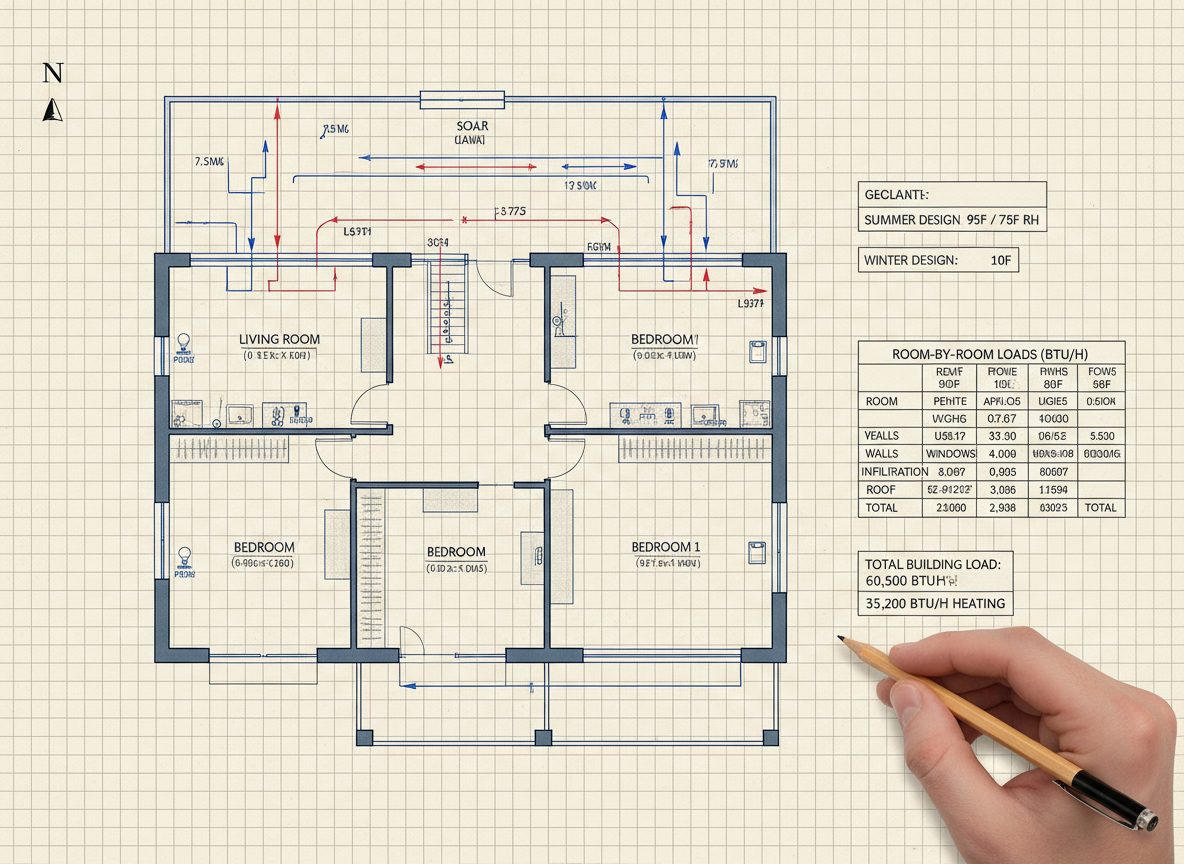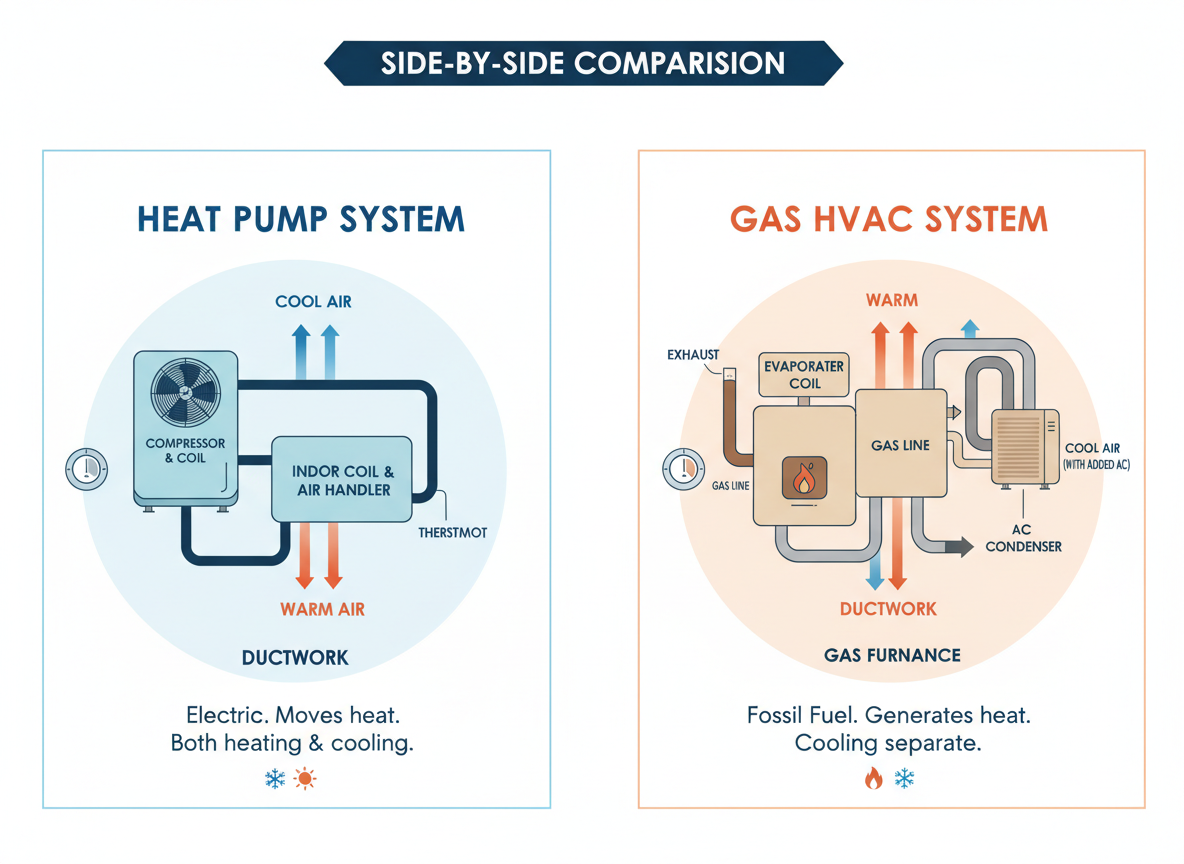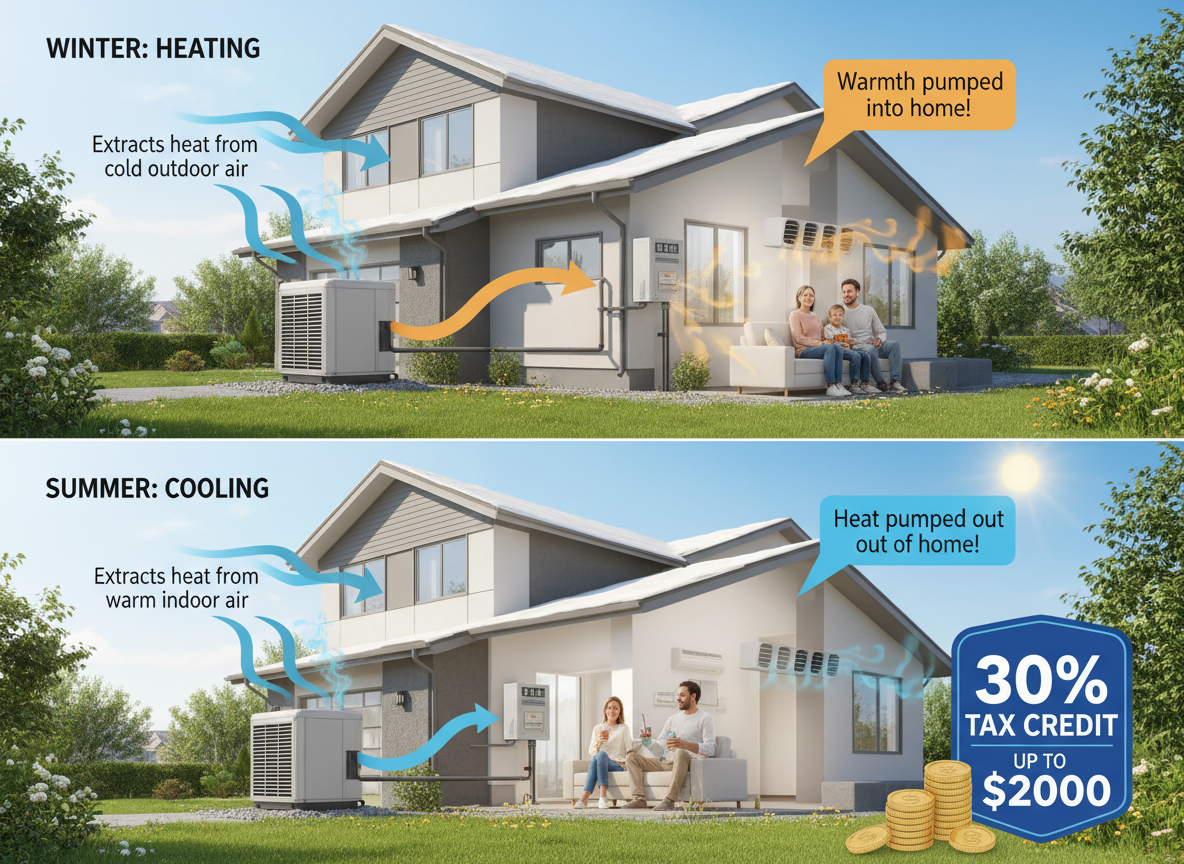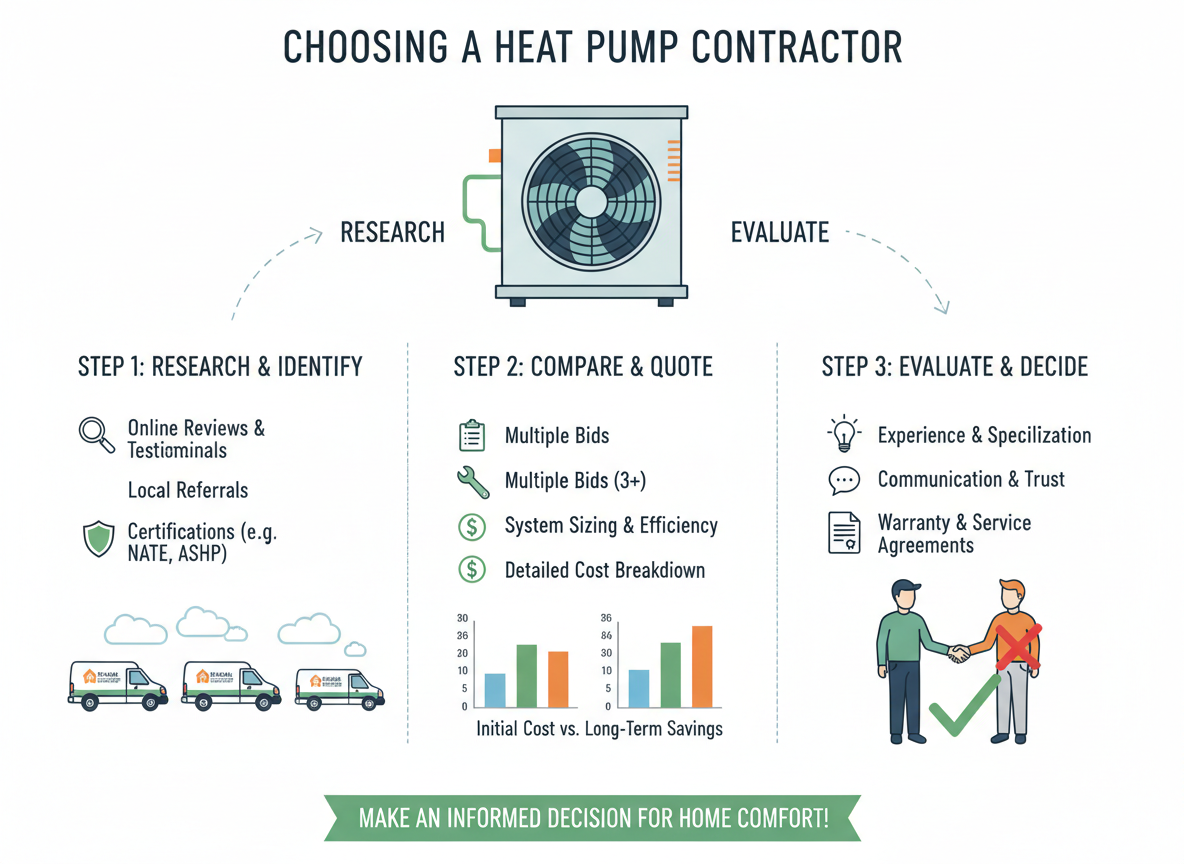
EER stands for the Energy Efficiency Ratio of an HVAC cooling system. EER measures the ratio of output cooling energy (in BTU) to input electrical energy (in watts) during operation. If you are purchasing a new HVAC system for your home, you may be more familiar with the term SEER.
SEER is a rating determined by AHRI (Air Conditioning, Heating, and Refrigeration Institute). Unlike EER, SEER stands for Seasonal Energy Efficiency Ratio. SEER measures the cooling efficiency of your air conditioner seasonally rather than year-round use. EER is way to determine how efficiently your home’s HVAC system operates. The higher the EER, the more efficient the system. A higher efficiency HVAC system translates to lower utility bills for you.
How Is EER Calculated?
EER is calculated at a steady 95°F, inside 80°F temperature and 50% humidity. On the other hand, SEER is calculated during a range of outside temperatures. If you know the BTU and wattage values of the system you can find the EER of any air conditioning system. As a general rule of thumb, an EER of 12 or above is considered energy efficient. However, if you are comparing two different models, the one with the higher EER will always be more energy efficient. Furthermore, when you are comparing two different models always compare EER to EER and SEER to SEER.
Keep in mind that EER is the efficiency you can expect from your air conditioning during summer since it is measured at one higher temperature, while SEER is a seasonal average. Depending on where you live one efficiency rating will be more accurate than the other. If you live somewhere where the temperature will be 95°F or more the EER will be a more accurate way to measure efficiency. However, if you live in more moderate climates the SEER would be more accurate.
Is Equipment With A Higher EER Worth It?
We understand your budget plays an important role when deciding on new HVAC equipment. Although price is an important factor, it is not the only factor you should consider when shopping for a new system. Even though you might lean towards the more affordable option, it's important to understand if it would be worth spending a bit more on equipment with a higher EER rating.
Having knowledge about EER will help you properly compare different systems in terms of their energy savings and avoid purchasing a less efficient unit. If you choose to purchase the cheaper option, you might actually end up spending more in the long run on a system that runs less efficiently. By having an understanding of these key terms you can work with an HVAC professional to choose the system that will be the most efficient for your home. Furthermore, by choosing equipment with a higher EER will come with the following benefits:
- Energy savings – By purchasing equipment with a higher EER, you will essentially consume less energy leading to lower utility bills.
- Superior cooling comfort – Equipment with higher EER have better cooling performance due to superior design and components.
- Low carbon footprint – which contributes to a healthier environment.
Call LA Heating & Air Today
SEER and EER can both be very useful when comparing different models to one another. However, they are not the only thing to consider when you want to decrease energy costs and increase efficiency in your home. It is also important to choose a system that is properly sized for your home and a contractor you can depend on to perform a quality installation. Call us today at (818)-660-1062 for a free estimate for installation or replacement of an HVAC system. Choosing the right EER, size and contractor who can perform a quality installation can make all the difference in installing an efficient system.
What Is EER? Related Posts:






















.png)














